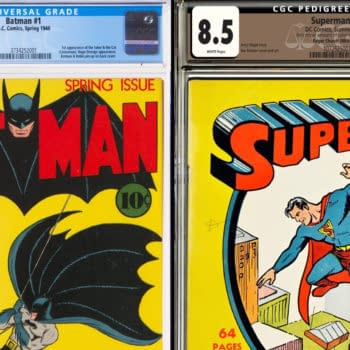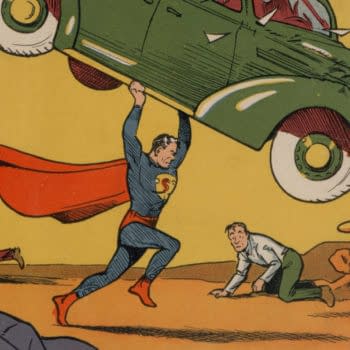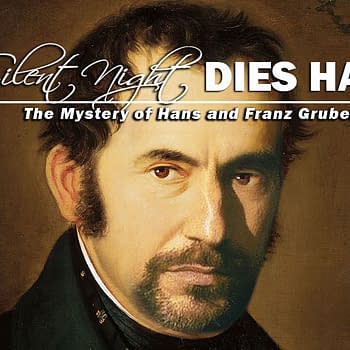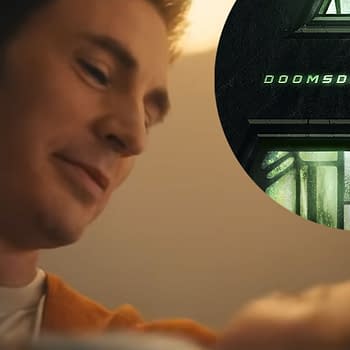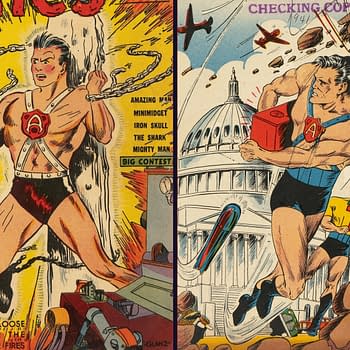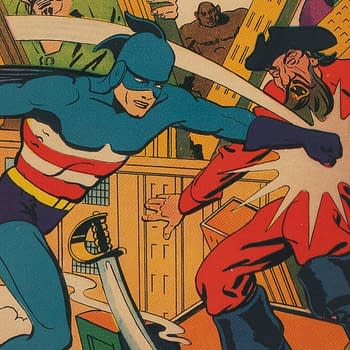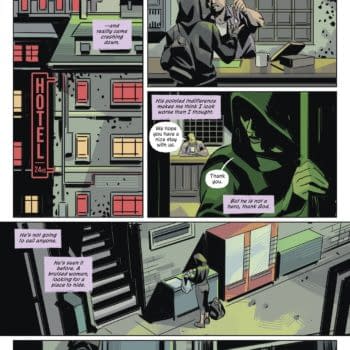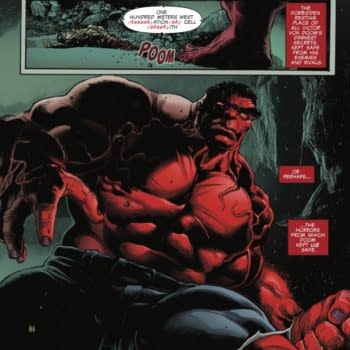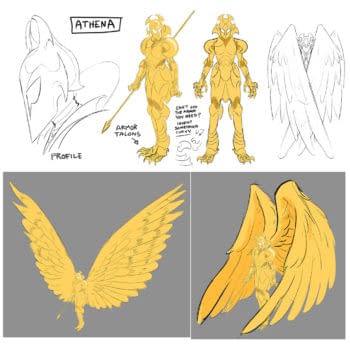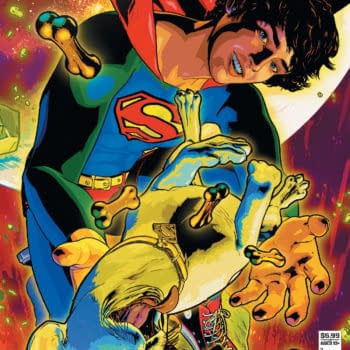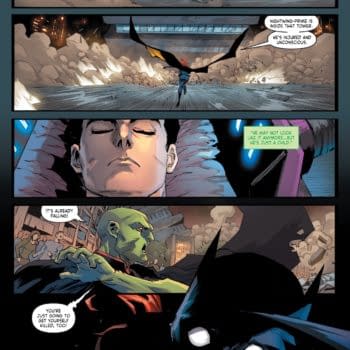Posted in: Comics, Heritage Sponsored | Tagged: Master Publications, pre-code horror
Dark Mysteries Pushing All The Pre-Code Horror Buttons, at Auction
Dark Mysteries editor William K. Friedman was an experienced hand at defending pulp and comic book publishers from against the government.
Heritage's auction blurb for Dark Mysteries #19 almost reads like a checklist of elements that soon brought Pre-Code Horror comic books to the attention of critics like Fredric Wertham and to the United States Senate: "classic bondage, skull, water wheel torture cover surrounds an injury-to-eye panel and art." It almost seems like the publisher or editor of Dark Mysteries was purposefully testing the boundaries at this point — and I think this just might have been what was happening. Because Dark Mysteries publisher Master Publications had an editor who had made a career of helping publishers test limits. Virtually a textbook example of why people collect Pre-Code Horror, there's a Dark Mysteries #19 (Master Publications, 1954) CGC FN/VF 7.0 Off-white pages, and a Dark Mysteries #10 (Master Publications, 1953) CGC VG 4.0 Cream to off-white pages plus several other issues of the series up for auction in the 2023 July 13 – 14 Pre-Code Horror & Crime Comics Showcase Auction #40227 at Heritage Auctions.
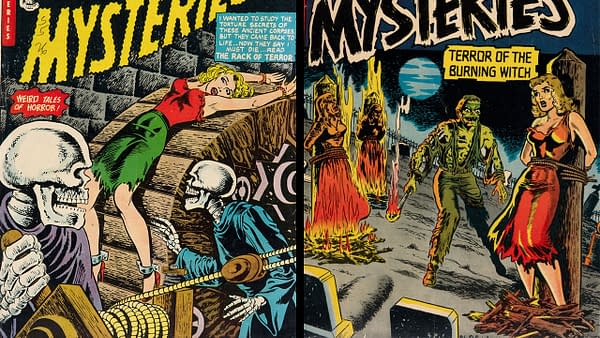
With a cover date of August 1954, Dark Mysteries #19, likely hit the newsstands that June or July. The title's editor, William K. Friedman, also the owner of publisher Story Comics among others, was then fresh off of his testimony in front of a U.S. Senate Subcommittee on Juvenile Delinquency when he put this issue together. And to put it bluntly, he was not having it:
Mr. BEASER. Have you anything to do with the magazine Dark Mysteries?
Mr. FRIEDMAN. Yes, but the magazine Dark Mysteries, I assist in the editing of the magazine.
Mr. BEASER. That is put out by─
Mr. FRIEDMAN. It is put out by a corporation known as Master Comics ─ that particular magazine is issued by a company known as Master Comics. I don't remember if I ever had any interest in Master Comics. At least I have no interest now.Mr. FRIEDMAN. But from the evidence that I have heard before this committee, from the very vociferous witnesses who appeared yesterday, the publisher of a book, from the evidence that I heard yesterday, he had 3,000 cases before him in a period of perhaps 5 to 6 years, and if I remember his evidence correctly, he could not point to a single instance in which he said that the particular juvenile was caused to become a delinquent because he read any particular kind of comic magazines.
Mr. BEASER. Let me add one thing to your statement. As I recall Dr. Wertham's testimony, it related to the fact he could not find one single case that he could point to as having been caused by a crime comic, but he was testifying to the effect that it had a positive effect. But in the morning sir, we had Dr. Peck, of the Children's Court, here, who did testify that on an emotionally disturbed child these crime and horror comics would have an effect.
Mr. BEASER. Are you not engaging in semantics, Mr. Friedman?
Mr. FRIEDMAN. I am not. I am trying to be honest in your answers.
Mr. BEASER. Are you not trying to say you can't point to a comic book which is a direct cause of a crime rather than talking about whether crime and horror comic books may be a contributing factor in the total scene, in the total action of a child?
Mr. FRIEDMAN. I did try to say before, and I am not a psychiatrist, that from what I have heard it appears to me that everything is a contributing factor to a child who is a delinquent, whether it is a rainy day, whether he has 5 cents in his pocket, or has not got 5 cents in his pocket, but I would like to come back to what I was mentioning before ─ this other witness who was here this morning also indicated there was no single incident.
As Friedman's comfortable sparring implies, this was not his first brush with defending publishers against government censorship. He was also a lawyer, and In 1934 he took on New York City over Commissioner of Licenses Paul Moss's actions in ordering 59 magazines off the newsstands there, including a number of pulps. Among other pulp publishers, Friedman represented Harry Donenfeld, who would soon become the publisher of DC Comics but was then the publisher of pulps including Pep Stories, Spicy Stories, and Gay Parisienne.
Friedman was known to be extremely hands-on as an editor, so the fact that Dark Mysteries #19 contained so many elements that Wertham and the Senate frowned upon was probably no accident. Friedman was well familiar with where the perceived boundaries were and was willing to test them. That makes the Dark Mysteries series a PCH classic, and there's a Dark Mysteries #19 (Master Publications, 1954) CGC FN/VF 7.0 Off-white pages, and a Dark Mysteries #10 (Master Publications, 1953) CGC VG 4.0 Cream to off-white pages plus several other issues of the series up for auction in the 2023 July 13 – 14 Pre-Code Horror & Crime Comics Showcase Auction #40227 at Heritage Auctions.





